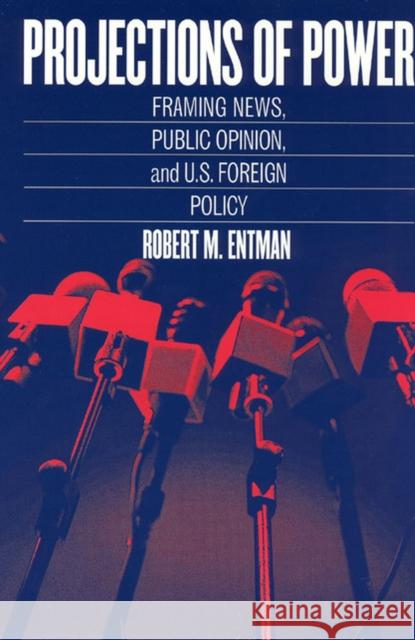Projections of Power: Framing News, Public Opinion, and U.S. Foreign Policy » książka
Projections of Power: Framing News, Public Opinion, and U.S. Foreign Policy
ISBN-13: 9780226210728 / Angielski / Miękka / 2003 / 229 str.
Projections of Power: Framing News, Public Opinion, and U.S. Foreign Policy
ISBN-13: 9780226210728 / Angielski / Miękka / 2003 / 229 str.
(netto: 109,20 VAT: 5%)
Najniższa cena z 30 dni: 113,12 zł
ok. 22 dni roboczych.
Darmowa dostawa!
To succeed in foreign policy, U.S. presidents have to sell their versions or framings of political events to the news media and to the public. But since the end of the Cold War, journalists have increasingly resisted presidential views, even offering their own spin on events. What, then, determines whether the media will accept or reject the White House perspective? And what consequences does this new media environment have for policymaking and public opinion?
To answer these questions, Robert M. Entman develops a powerful new model of how media framing works-a model that allows him to explain why the media cheered American victories over small-time dictators in Grenada and Panama but barely noticed the success of far more difficult missions in Haiti and Kosovo. Discussing the practical implications of his model, Entman also suggests ways to more effectively encourage the exchange of ideas between the government and the media and between the media and the public. His book will be an essential guide for political scientists, students of the media, and anyone interested in the increasingly influential role of the media in foreign policy.











